Career Fields
Army Career Fields
Aviation – “Above the Best”
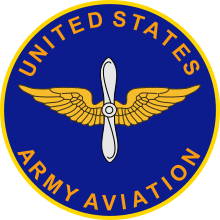
Would you like to fly a helicopter? The Army’s Aviation branch is responsible for the coordination of Aviation operations from maintenance to control tower operations to tactical field missions. Army Aviators provide quick-strike and long-range target engagement during combat operations and are often responsible for transporting troops and supplies.
Aviation is a challenging career like no other in the Army. Army Aviation pilots begin their careers undertaking a year-long flight school at Fort Rucker, Alabama. You will learn learning basic flight, piloting in bad weather, and then combats skills. After passing these graduating skill-level courses, you will become an expert in in piloting either a utility, cargo, or attack helicopter. For a select few, there are opportunities to learn to fly fixed-wing (airplane) missions in support intelligence gathering and VIP support.
Cyber Corps – “1000101010110101010”
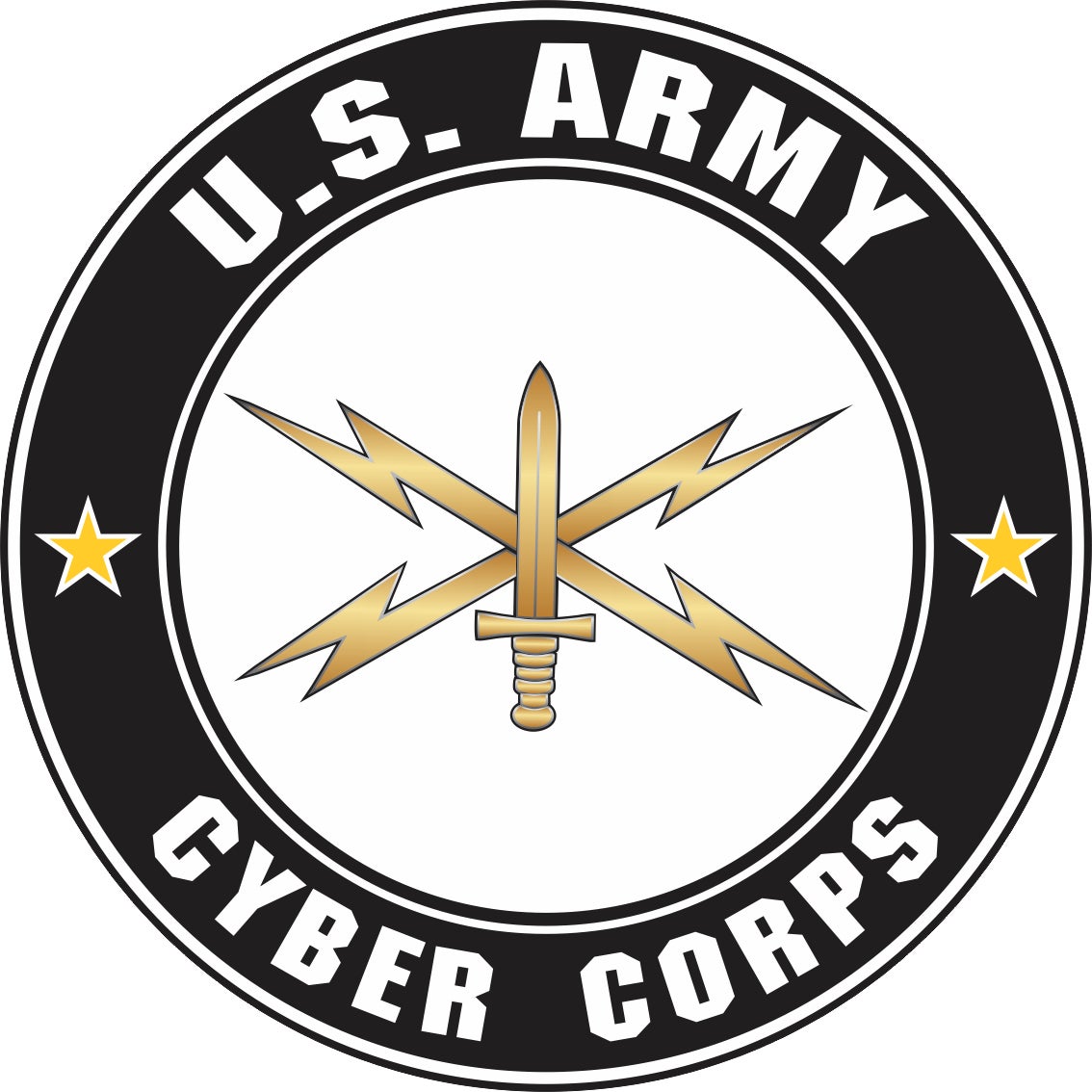
Cyber Corps Officers execute defensive and offensive cyberspace operations. They are innovative, adaptive, resilient, and intellectually curious leaders, capable of applying the art and science of the profession of arms within the cyberspace war fighting domain and electromagnetic spectrum (EMS), leading offensive and defensive cyberspace operations and electronic warfare (EW) actions. They must be technically superior and passionate, understanding the cyberspace domain and EMS in a multi-dimensional sense to leverage leading-edge technologies and technically-skilled teams to provide operational commanders a unique effects-based capability for defending our nation against emerging cyber threats. They must effectively articulate cyberspace and EW operational capabilities to commanders, as well as, integrate those capabilities to create effects in unified land operations across joint, interagency, intergovernmental, and multinational environments. They must be lifelong learners to continue developing expertise as leaders in their field and be highly adaptive within an emerging technological environment.
Signal Corps – “Pro Patria Vigilans (Watchful for the Country)”
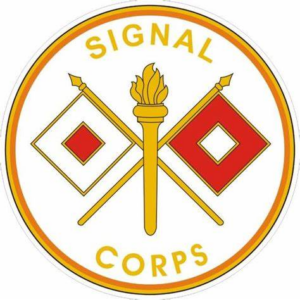
Signal Corps Branch Soldiers are experts in operating and maintaining the Army’s data systems, and resources. The signal officer leads the Signal Corps, which is responsible for the Army’s entire systems of communication. Officers plan and execute all aspects of communication on a mission and are critical to the Army’s continued success.
Signal officers lead Soldiers and organizations that provide dynamic communication network and information systems enabling mission command from the national command authority to the tactical edge. They are mentally tough and possess strong interpersonal skills which enable them to develop positive relationships and build effective teams. They are technologically adept problem solvers skilled at leveraging the latest technologies and practices and are able to multi-task in a rapidly changing, complex environment. They clearly articulate the highly-technical components of the signal and cyber community into operational terms providing the warfighter with a common operating picture. They are lifelong learners able to pursue continuing education in leadership, management, information technology and other domain-specific disciplines. Collectively, these talents make Signal officers superb problem solvers and leaders.
Adjutant General – “Defend and Serve”
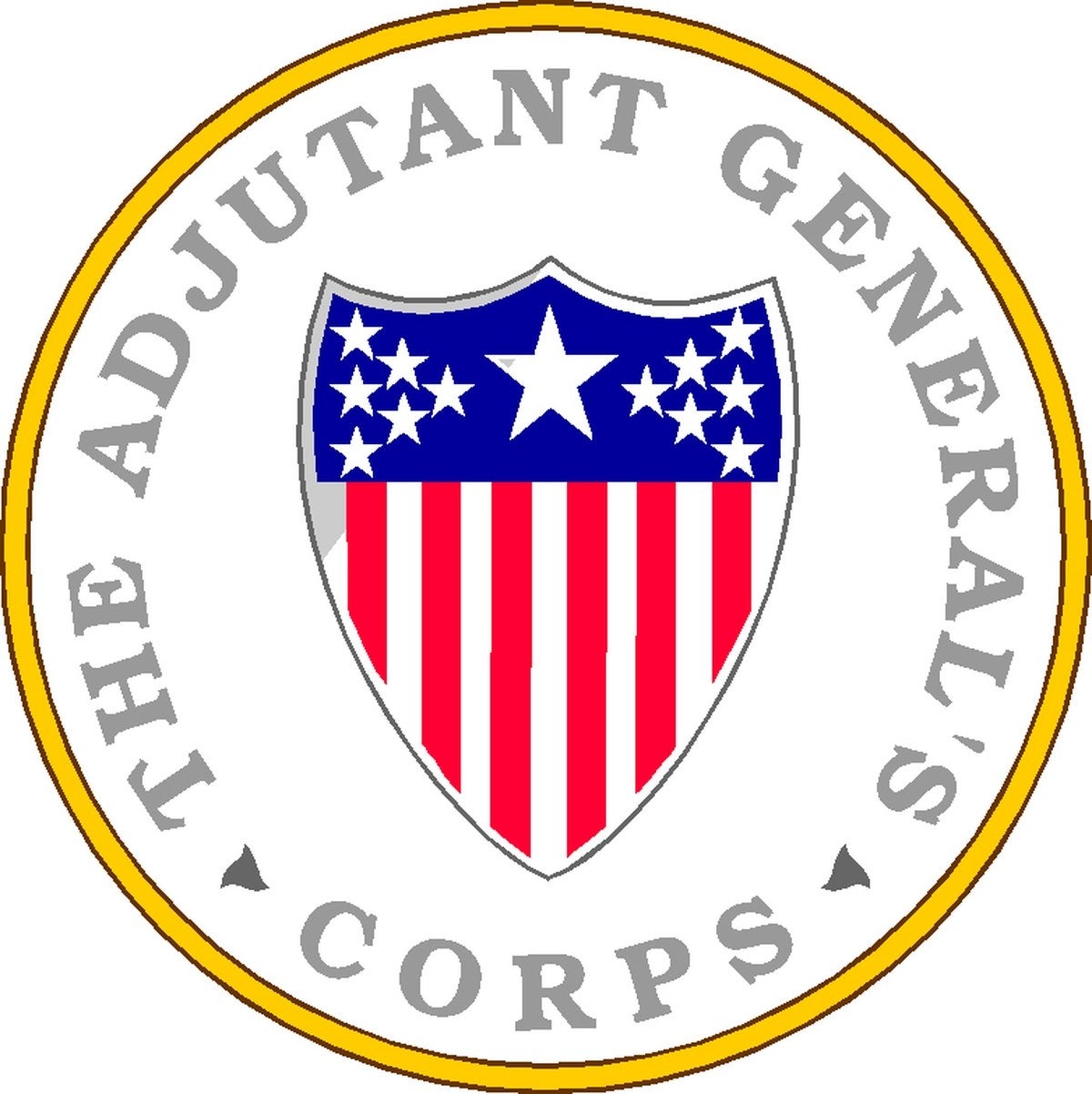
Adjutant General (AG) Corps Soldiers are experts in personnel management. This branch helps Soldiers with tasks that affect their welfare. AG Officers are leaders in the human domain responsible for the management of the Army’s most important resource –its people. They must possess the necessary technical and operational expertise to plan, coordinate, and direct personnel support and advise commanders on all aspects of human capital. They must be able to integrate into any organization and function as a member of a combined-arms staff. They employ HR systems, software applications, the military decision making process, and lead a small team to proactively manage current and future requirements.
Transportation Corps – “Spearhead of Logistics”
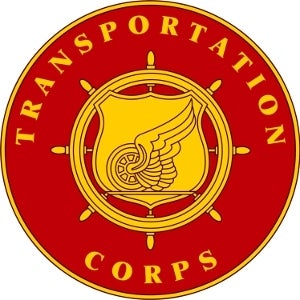
Transportation Officers are multi-dimensional warriors who can operate any platform, perform in any environment, and do so with the right “mind-sets over skill-sets.” They must be innovative and creative multi-taskers –able to improvise and develop fresh, new ideas –while encouraging others to do the same. Transporters are leaders who can deliver outcomes, but also embrace and promote diversity, possess empathy and compassion for others, and create environments where individuals are accepted, understood, and valued. They are integrators who exhibit the imagination to challenge subordinates to work outside their comfort zones and deliver new solutions. They are perceptive enough to know how they connect to the big picture, while being versatile enough to leverage, learn, and develop individual skills and talents. Transportation officers must be talented in their core proficiencies, highly analytical, able to lead change, capable of operating across the spectrum of conflict, able to operate in Joint, Interagency, Intergovernmental, and Multinational (JIIM) environments, culturally astute, and courageous enough to see and exploit opportunities.
Finance Management – “To Support and Serve”

Finance Branch Soldiers will learn to manage the preparation and payment of travel, how to account for the obligation and disbursement of public funds, and payment of salaries and wages. In addition to providing financial services for fellow Soldiers, Finance Soldiers play an important role in supporting logistical, medical and supply requirements during tactical missions.
Financial Management (FM) officers provide responsible management of government fiscal resources through the execution of management controls, which promote effective governance. They must handle vast amounts of financial information and engage in both abstract and analytical reasoning. They must have the requisite knowledge and understanding of general accounting principlesand management information systems technology to complete financial management tasks and enable cost-informed decision making. Financial Managers must be able to find creative solutions to problems beyond those that are rule-based, yet ensure that they comply with applicable laws and regulations. All FM Officers must be articulate, effective, and concise communicators. Due to the diverse nature of the units they support, FM officers must effectively communicate financial management impacts to senior leaders in operational terms.
Ordnance Corps – “Armament for Peace”
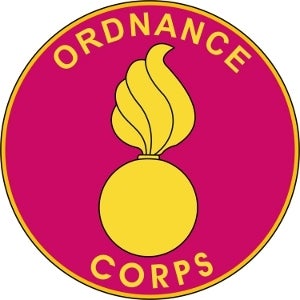
Ordnance Branch Soldiers ensure that weapons systems, vehicles, and tactical support equipment are in perfect working condition. Ordnance officers are responsible for ensuring that weapons systems, vehicles and equipment are ready and available — and in perfect working order — at all times. They also manage the developing, testing, fielding, handling, storage and disposal of munitions.
Maintenance and Munitions Management: Maintenance and Munitions Management Officers are adaptive, agile, logical and detail oriented leaders that are directly responsible for building and maintaining the combat power of the Army. They enable readiness through dynamic and articulate leadership with the ability to establish priorities of work to accomplish the mission. Leadership in materiel maintenance and ammunition management processes requires officers who use logic and analytical skills to solve problems and communicate solutions precisely. These officers must be support-focused, skilled at building relationships, and able to connect with others in a direct way so they can advise commanders and customers on sustainment operations in complex operating environments.
Explosive Ordnance Disposal-EOD: Explosive ordnance disposal officers are the culmination of the best tactical and technical training the Department of Defense can provide. As the Army’s preeminent tactical and technical explosives specialists, EOD officers need to operate confidently with detailed and disciplined accuracy under stressful conditions, be mentally tough, work calmly under pressure, and be prudent risk takers. They provide dynamic leadership to formations of expertly trained EOD Soldiers. Explosive ordnance disposal officers must be effective communicators with an extreme aptitude for planning and organizing in support of Army units worldwide, civil authorities in the continental United States, and across all operational environments. EOD officers are “hands-on” Soldiers with technical and mechanical inclination, acute sensitivity to visual details, and the ability to orient to three dimensions.
Quartermaster Corps – “Supporting Victory”
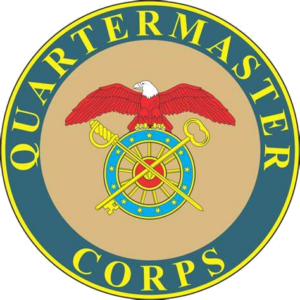
Quartermaster officers are responsible for making sure equipment, materials and systems are available and functioning for missions. More specifically, the quartermaster officer provides supply support for Soldiers and units in field services, aerial delivery, and material and distribution management. The Quartermaster Branch handles the logistics of providing Soldiers with food, water, petroleum, repair parts and other field services during a military or relief operation. Leadership in materiel management, logistics automation, field services, petroleum and water operations, aerial delivery, and mortuary affairs requires Quartermaster officers to be leaders and managers who can develop tasks and work processes for desired outcomes. They must be innovators, able to devise solutions and prioritize responses beyond that which is rote or rule-based. Given their worldwide missions, these officers must be adept at virtual collaboration -work productively, drive engagement, and display presence as a member of a team using management information systems. Perhaps most importantly, Quartermaster officers must be customer-focused, as sustainment enables operational reach and freedom of maneuver.
Chemical Corps – “Elements Rule the Battlefield”
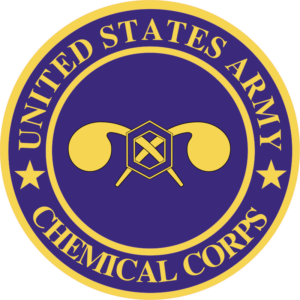
The threat of Chemical, Biological, Radiological and Nuclear (CBRN) weapons requires the Army to have a corps of dedicated professionals capable of using the latest CBRN defense technology. The Chemical Branch protects our country from CBRN hazards and Weapons of Mass Destruction (WMD).
Chemical Corps Officers are adaptive, physically fit, and agile leaders. CBRN Officers possess resident expert knowledge and conceptual understanding to process vast amounts of information in order to prioritize and act on that information. The scope of the threats they confront requires an ability to utilize the latest technologies in order to counter the threat posed from WMD and hazardous materials (HAZMAT) and ensure interoperability with joint forces as well as interagency and international partners.
Military Intelligence – “Always Out Front”
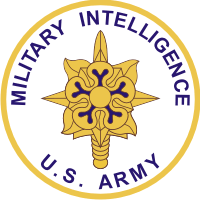
The Army’s Military Intelligence (MI) branch is responsible for all intelligence gathered or learned during Army missions.
MI personnel support commanders and decision makers by analyzing the threat and conditions in a specific operational environment. MI officers must effectively lead Soldiers to solve problems. These officers analyze different cultures and threats to take an interdisciplinary approach to understand both friendly and threat operations in multiple domains: land, air, maritime, space, and cyberspace. MI officers have the ability to interpret patterns associated with complex situations. They must effectively communicate in both verbal and written form. They must understand the core competencies: intelligence synchronization, intelligence operations, and intelligence analysis. They manage systems to process, exploit, and disseminate intelligence. MI officers may obtain an area of concentration in signals intelligence, counterintelligence, or human intelligence.
Air Defense Artillery – “First to Fire”
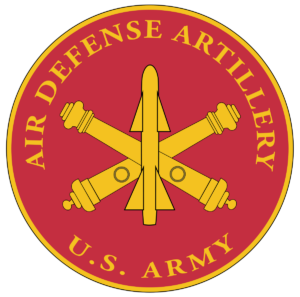
The Air Defense Artillery (ADA) branch specializes in anti-aircraft weaponry. This branch is responsible for protecting troops from aerial attacks and surveillance. ADA Officers manage modern complicated military computers on complex networks, communications equipment systems, and radars in order to provide warning, detection, and protection for armed forces from aerial attack, missile attack, and aerial surveillance. ADA officers are responsible for the tactical employment, command and control, and the airspace management of air defense artillery missile and gun units. They must be an expert in tactics, techniques, and procedures for the employment of air defense systems. They also become experts in one or more of the following systems: the Patriot/THAAD missile system; the AVENGER and Counter-Rocket, Mortar, Artillery (C-RAM) system; associated radars; and command and control computer systems.
Armor – “The Combat Arm of Decision”
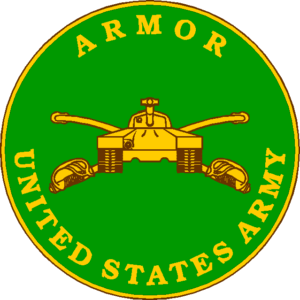
Armor crew members use tanks and other track vehicles to engage enemy targets. Armor officers are leaders of teams who are experts in combined arms, reconnaissance, and security operations. They possess the technical and tactical competence, social and cultural awareness, and oral and written communications skills needed to cultivate trust, and teamwork. Armor officers are responsible for training their units for combat to defeat lethal, adaptive enemies in all types of terrain. Armor officers lead their tank formations, closing with and destroying the enemy, as well as lead scouts conducting reconnaissance and security. They are physically fit and mentally tough, prepared to succeed under the most adverse conditions. They are leaders who possess a flexibility of mind, able to utilize multiple technologies to devise solutions to complex and dynamic challenges. Armor officers are comfortable making decisions in ambiguous environments, developing courses of action, determining and mitigating risks, then precisely and effectively communicating plans to accomplish the task or mission.
Infantry – “Follow Me!”
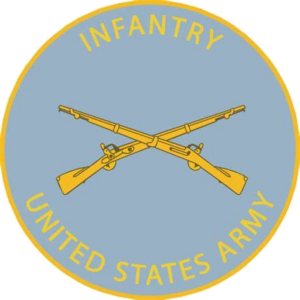
The Infantry Branch is the main land combat force. They are responsible for meeting any threat by land. Infantry officers must be able to operate in some of the most politically, economically, and environmentally adverse situations while at different threat levels. In order to operate in such environments, Infantry Officers must possess the highest levels of mental toughness, problem solving ability, and physical fitness. Using creativity and sound judgment, they must have the ability to devise and prioritize solution sets rapidly, motivate and employ Soldiers, and have an innate ability to adapt to fluid situations when facing any enemy across the entire threat spectrum. Additionally, Infantry Officers must have the ability to discriminate an action out of the norm and respond with the appropriate level of action. They must also demonstrate consistent command of these skills over extended periods of time.
Chaplain Corps – “For God and Country”
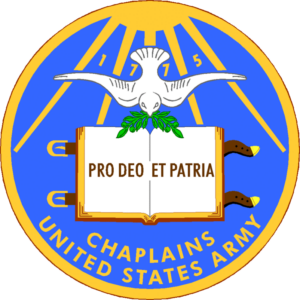
The Chaplain Branch is responsible for providing spiritual comfort and support to Army Soldiers of all religious backgrounds. As an Army chaplain you will have the responsibility of caring for the spiritual well-being of Soldiers and their Families. An Army chaplain’s flock can consist of over 1,500 people.
The Army chaplaincy is a religiously diverse population reflecting the diversity of the Army, yet each chaplain ministers according to the tenets of his or her distinctive faith community. Unlike most officers in the Army, a chaplain begins serving as a staff officer immediately.
Corps of Engineers – “Essayons (Let Us Try)”
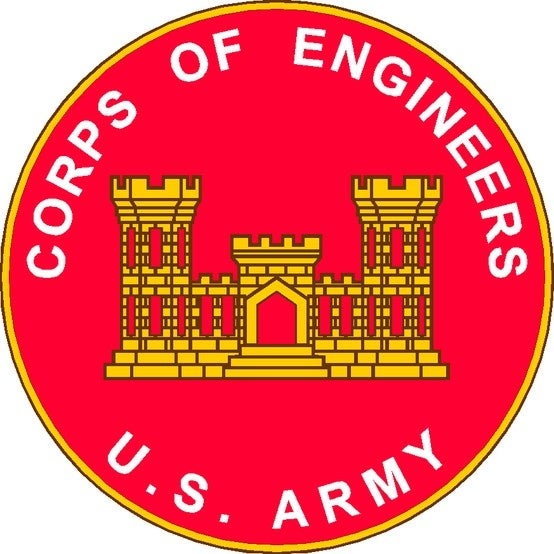
An engineer officer is responsible for providing full support to the wide range of engineering duties in the Army. They can help build structures, develop civil works programs and even provide combat support.
The Engineer Branch is looking for cadets to become tactical and technical engineer warriors that are devoted to providing maneuver commanders and ground forces with freedom of action at every echelon. Engineer officers have unique opportunities to develop their leadership skills and personal talents through military schools, credentialing/certification programs, and advance civil schooling opportunities that are exclusive to the Engineer Regiment. Collectively, these skills make Engineer officers superb project managers and tenacious problem solvers that are capable of operating in ambiguous environments solving the Nation’s toughest problems. If you possess the drive to succeed and master all challenges, and are willing to exploit opportunities for self-development, then the Engineer Regiment is for you.
Army Future Career Opportunities
There are a series of career options that are only available to officers after they prove themselves in one of the Commissioning Branches. For each of these career fields, an officer will have the opportunity to apply after approximately 3 years of proven performance. These are:
Civil Affairs – “Secure the Victory”
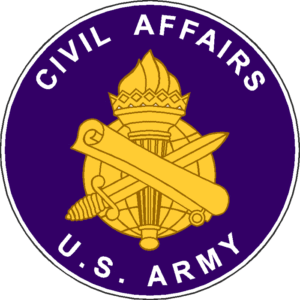
Civil Affairs (CA) Officers are builders, ambassadors, and negotiators. They identify critical requirements needed by local citizens in combat or crisis situations. CA Officers act as a liaison between the Army and civilian authorities and populations. The CA officer combines regional expertise, language competency, political-military awareness, cross-cultural communication and professional military skills to conduct civil affairs operations and support civil-military operations in support of conventional and special operations forces. They lead small teams of 2-4 Soldiers to conduct operations that enhance awareness of and manage the interaction with the civil component of the environment. They identify and mitigate underlying causes of instability within civil society, or apply functional specialty skills that are normally the responsibility of the civil government. CA Officers work with and through the indigenous population to influence within the human domain.
Psychological Operations – “Pursuade, Change, Influence”
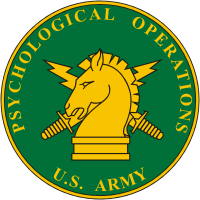
The Psychological Operations (PsyOp) Branch is primarily responsible for the analysis, development and distribution of intelligence used for information and psychological effect. The PsyOp Officer has in-depth knowledge of the art and science of persuasion and influence, and an expertise in the political and cultural trends and attitudes of the people in his or her area of operation. PsyOp Officers utilize their understanding of social psychology, individual and group dynamics to influence individuals, groups and populations. They are masters of influence supporting military and inter-agency missions with culturally appropriate media to weaken the enemy capacity, enhance partner capabilities, and win local support. They advance U.S. Government policy through information and influence programs, shaping target audience behavior via tailored messages, enhancing partner nation legitimacy and the ability to influence, and weakening enemy morale to encourage surrender, defection, or desertion. PsyOp Officers are imaginative and enterprising specialists capable of persuading their audience through word and picture to develop an attitude that will assist the Army’s combat forces to accomplish their mission.
Special Forces – “De Oppresso Liber (Free the Oppressed)”
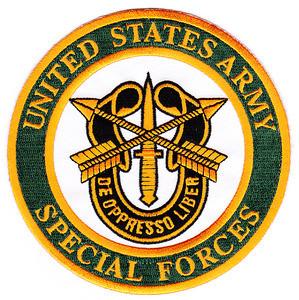
The Special Forces (SF) branch contains some of the most skilled Soldiers in the world. SF Soldiers operate in small teams to accomplish sensitive missions. Commonly known as Green Berets, they operate in small, 12-person teams around the world to safeguard American interests, support allies, and train future allies. They are tactical infantry master trainers who are experts at foreign internal defense, reconnaissance, and counter-terrorism. They are highly versatile and adaptable Soldiers who can independently function in an austere environment. They are skilled with foreign combat equipment, foreign language, and are flexible and comfortable in uncertain situations.
Specialty Careers (Lawyers, Nurses, etc.)
So you already know what you want to do with your life? You want to be a lawyer, a nurse, or a dentist? Army ROTC can set you up for success, and even help pay for your advanced schooling.
Nurse Corps – “Embrace the Past – Engage the Present – Envision the Future”
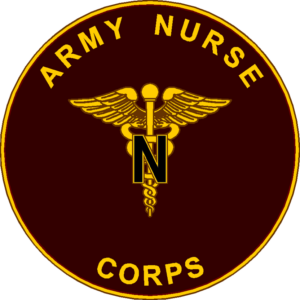
Nurse Corps Officers lead a nursing team that cares for Soldiers and their families. All Army Officers are leaders. As an Army Nurse, you can expect to have greater responsibility sooner than in the private sector. You will refine the leadership skills you developed in ROTC as you serve your country.
Scholarship Program- In addition to the regular ROTC scholarship, if you receive an Army ROTC Nurse Scholarship you will receive the following extra benefits:
- NCLEX-RN review course fee paid
- NCLEX-RN exam fee paid
- Guaranteed nurse position upon graduation
- Malpractice insurance paid
- Immunizations paid
- Nursing supplies paid
- Uniforms paid
Specialty Courses- The Army offers six specialty areas of study to nurse officers:
- Critical Care
- Perioperative
- Emergency Medicine
- OB/GYN
- Community Health
- Psych/Mental Health
These courses are 16 weeks in length and are conducted in a combination of classroom and clinical settings. Army Nurses must have a minimum of one year clinical experience prior to attending one of these schools. All scholarship nurse cadets will automatically be eligible to apply for specialty training within the first 6-12 months on active duty.
Educational Opportunities- The Army Nurse Corps encourages its nurses to improve their skills and enhance their professional experience through a variety of educational programs, including fully funded post-graduate opportunities, continuing education, and specialty courses. Post-graduate fields include:
- Clinical Nurse Specialist
- Healthcare Administrator
- Nurse Anesthetist
- Family Nurse Practitioner
- Informatics
- Nurse Midwife
Judge Advocate General (Army Lawyers) – “Soldier First – Lawyer Always”
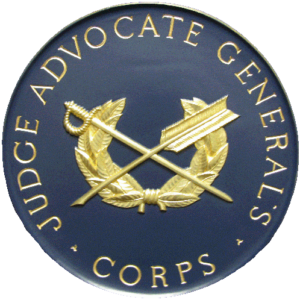
The U.S. Army Judge Advocate General’s Corps is a government organization that operates like a court system. It’s practitioners, referred to as Judge Advocates, are licensed attorneys qualified to represent the Army and Army Soldiers in military legal matters. Judge Advocates are responsible for offering legal support that involves military operations. They primarily focus on the areas of criminal law, legal assistance, civil/administrative law, labor/employment law, international/operational law, intelligence law, and contract/fiscal law.
ROTC Cadets who desire to become a lawyer have the opportunity to apply for an additional Educational Delay to attend law school prior to entering the Army, as well as additional scholarship funding to help pay for it.
Veterinary Corps
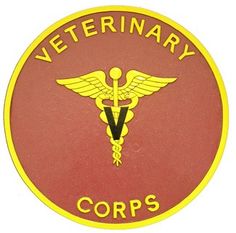
As an Army veterinary officer, you can practice in three primary areas: animal medicine, veterinary public health, and research and development. You will be responsible for treating government-owned animals and the valued pets of service members and their families.
Army Veterinary Corps officers are also responsible for programs ensuring the safety and security of Department of Defense food supplies, both here and abroad. Approximately one-third of Veterinary Corps officers are involved in research and development in an incredible range of focus areas, from basic breast cancer research to vaccine development.
Many times, Army veterinarians deliver public health programs around the world such as vaccination programs in Ecuador, teaching Thai veterinary technicians, or supporting foot and mouth disease eradication efforts in Mongolia.
As with other programs that require advanced schooling, ROTC Cadets who desire to become a veterinarians have the opportunity to apply for an additional Educational Delay to attend school prior to entering the Army, as well as additional scholarship funding to help pay for it.